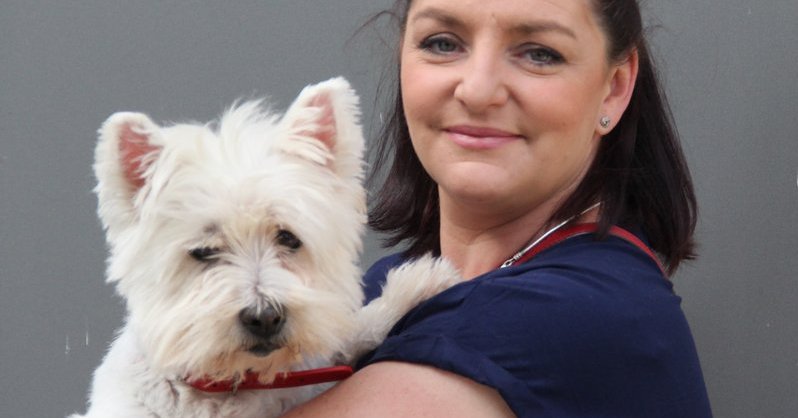
THIS STORY IS FROM OUR ARCHIVES
Lucy has already been through two major life-and-death situations in her old age: she survived mammary cancer after major surgery in 2011, and just six months ago, she needed another big operation to save her life after she developed a womb infection. At fourteen years of age, she is now an elderly terrier, and although she seems very healthy, Lynette is aware that she’s the equivalent of a person in their nineties.
A CRISIS DEVELOPED
The crisis happened out of the blue, on a Saturday morning. Lucy normally loves her morning walk, but on this occasion, five minutes into the walk, she flopped down and refused to get up. She started panting heavily, as if she couldn’t breathe. Lynette picked her up and rushed her down to see me.
When I examined her, her gums were pale. My immediate concern was that she was suffering from blood loss, but there was no sign of any external bleeding. Her abdomen felt swollen, so I took an xray picture, and this showed me what was happening. She had a lump, the size of a small orange, sitting in her abdomen, behind her stomach. It was very likely that this was a tumour on her spleen: this is common in older dogs. Splenic tumours often burst as they grow bigger, causing internal bleeding. Surgery to remove the spleen is possible in an effort to save a dog’s life, but in two-thirds of cases, the tumour is malignant, so the surgery only gives the dog a few more weeks of life. There was also a risk that she might not survive the surgery in the first place.
I gave Lucy some pain relief, and she seemed to improve. I explained that the bleeding from her spleen could stop and she might be fine for a while, but if she deteriorated, an emergency operation was essential. The alternative was to accept that she was an elderly dog, nearing the end of her life, and euthanasia might be Lynette’s choice.
Lynette took Lucy home to think about what to do. The little dog slept all day, and by the following morning, she seemed to be back to herself, wanting to go for a walk as usual. Lynette kept her quiet, and the next day, she brought her to see me again, this time to have an ultrasound check to find out more about the mass on her spleen. This test confirmed that there was no visible spread of any cancer to elsewhere in her body. It was almost certain that her spleen would start to bleed again, sooner or later, so Lynette made the big decision to put her through the major operation to remove the spleen. She knew that there was a risk of Lucy dying, but if she survived, it would be worth it.
LUCY HAD AN OPERATION
The operation went well: Lucy’s spleen was successfully removed and she survived. In fact, by the next day, she was already eating well and keen to go for her usual walk. The mass on her spleen was sent to the laboratory for analysis. A big question had to be answered: was it malignant cancer, or something benign. It was impossible to tell just by looking at it.
The good news came in a few days later: it was completely benign. Not only has Lucy been cured of her immediate crisis, but her long term future also looks good. She has now survived three major crises: surely, from now on, her old age will get a little easier!




Please note that I am unable to answer veterinary questions in comments. If you have questions or concerns about your pet's health it is always better to contact your vet.